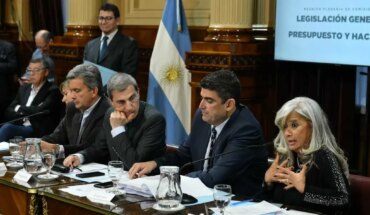The results of the Chile Dice survey (Criteria – Universidad Alberto Hurtado) show an alarming picture: 85% of respondents say that the environment in Chile is highly polarized, and 82% say that Chileans have little or no trust in institutions. After the rejection of the Convention’s proposal, it is expected that coexistence among Chileans will worsen and there is no confidence that this course will be modified in the near future. If the ongoing constituent process had expectations of giving legitimacy to a political system in crisis and an economic model perceived as unequal, the rejection of the Convention’s proposal has only deepened the distance between political representatives and citizens.
The triumph of the Rejection option has multiple explanations: the discomfort of citizens in the face of a stagnant economy and security crisis; the entry of new voters and the transversal questioning of the elites; the inclusion of controversial proposals for citizenship in the new constitution – such as plurinationality, parallel justice system or abortion; the questioning of the very performance of the Convention and the difficulties generated by its agonistic logic; as well as the rejection that produced his contempt for national identity. Another dominant explanation is that the plebiscite campaign was dirty, riddled with false propaganda, and that citizens voted ill-informed.
The results of the Chile Dice survey confirm this latest impression: Almost half of respondents (47%) think the exit plebiscite election campaign was dirty, delivering misinformation and lies about the options. This impression is amplified among those who supported the text: 89% of those who voted Apruebo think that Chileans were little or poorly informed about the constitutional proposal. For many of these voters, social media campaigns and press debates about fake news affected the outcome. Examples of these fake news They were that the new constitution put at risk pension funds, own housing, subsidized private schools and private health care. It is also true that various ambivalences in the discourses of each side increased the possibility of distorted interpretations by the other.
In the midst of this polarization: what can we expect from the media in the face of the ongoing constitutional process? Media is one of the most powerful vehicles in the construction of reality (Schudson, 2005). News produced and circulated in the media remains one of the most important avenues through which society acquires knowledge of the world (De Botton 2014). Especially in democracy, the media play a central role in pointing out issues of public interest (Donsbach, 2014), and helping to build the idea of nation as an imagined community. As Benedict Anderson (1983) highlighted, regardless of the inequality and exploitation that may prevail in a society, the nation is always conceived as a horizontal instance.
Considering the media’s ability to set the agenda and build the media’s idea of nationhood, it is worrying that 45% of respondents in Chile Dice think that the media exaggerate and amplify differences, helping to produce polarization. A sample button is how conservative sectors have tried to resignify the semantics of the social explosion of 2019, and the reasons that led to it. With the nickname of “octubrismo”, columnists and editorials of the main media have emphasized the violence of the 2019 revolts that pushed the political class to listen to citizen demands for a new constitution. Some of these have even relativized human rights violations during the repression of protests. These columnists forget the multiple reasons that led to the outbreak, which have not disappeared, and that the popular mandate to draft a new constitution had 79% support in the entry plebiscite (October 25, 2020). This dissociation between the wishes of citizens and a medial public sphere engaged in elite debates is a vital part of the problem.
Faced with a nation that does not finish processing its disagreements and mistrust, The media should contain the appetite for emotional polemics and interpretation.Istorsionada that carries the much appreciated rating. By stoking trench coverage of the ongoing process, the media has fueled the country’s polarization, making it difficult to build Chile as an imagined community. On the contrary, they should agree on basic frameworks of public veracity, as is required of surveys, in order to fulfill the critical role of informing citizens about the constitutional process, scrutinizing the behavior of the authorities and representing the pains and desires of society.
References
Anderson, B. (1983) Imagined Communities: Reflections on the Origin and Spread of Nationalism. Verse.
De Botton, A. (2014) The News: A User’s Manual. Pantheon.
Donsbach, Q. (2014) ‘Journalism as the new knowledge profession and consequences for journalism education’. Journalism, 15:6 pp. 661–677.
Schudson, M. (2005) ‘Four approaches to the sociology of news’ in Michael Gurevitch and James Curran (Eds.), Mass media and society (London, UK: Hodder Arnold) pp. 172–197.
* Tomás Undurraga holds a PhD in Sociology from the University of Cambridge (2012), and a post-doctorate in Science and Technology Studies from University College London (2012–2016). His areas of research are: (1) economic sociology; (2) sociology of expert knowledge; (3) media studies; and (4) science, technology and environmental studies.
Follow us on
The content expressed in this opinion column is the sole responsibility of its author, and does not necessarily reflect the editorial line or position of El Mostrador.





